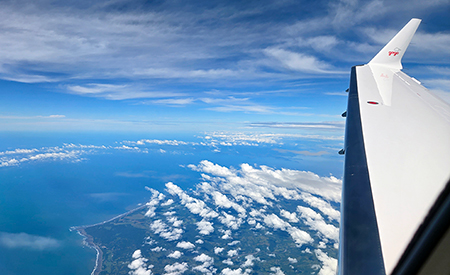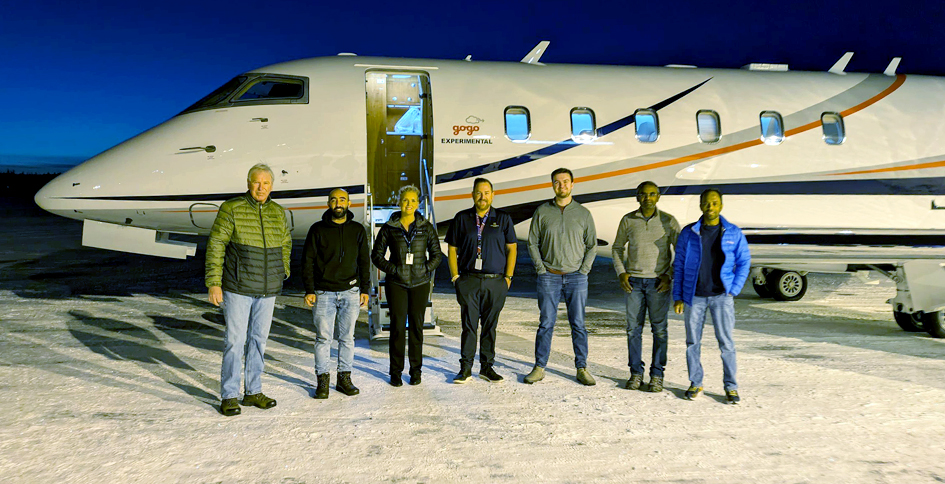Gogo Galileo HDX Flight Testing over Alaska and the equator
December 16, 2024
Gogo Galileo HDX flight testing explained

Two flight paths for testing two different handovers
An important part of this phase of testing was evaluating different types of handovers:
- LEO satellite to LEO satellite in the same orbital plane
- LEO satellite to LEO satellite from two distinct orbital planes
To evaluate the first scenario, our pilots would fly several hours north and south following the path of one orbital plane. For the second test, the pilots would fly a few hours east to west, crossing into different orbital planes.
Testing in two regions with distinct challenges

Equatorial region Gogo Galileo HDX testing
Testing near the equator poses a different challenge. Unlike the poles, satellites are farther apart, creating potential gaps in connectivity and slower throughput. Flights simulated long-haul routes, where the Gogo Galileo HDX system had to navigate between satellites spaced at greater distances, both in the same orbital plane and different planes.

Polar region Gogo Galileo HDX testing
In the polar regions, satellites are densely packed. This tight-knit portion of the LEO network makes handovers more frequent and more complex. The testing team’s mission in and around Alaska was to evaluate these rapid handovers and ensure reliable performance.

“The testing flights are about making sure the Gogo Galileo HDX system meets customer expectations, offering high-speed internet, even in the most remote parts of the world." .”
Jay Sturn, Systems Engineer at Gogo
Results of the Gogo Galileo HDX testing and next steps
Over Alaska and the equator, our team found that the Gogo Galileo HDX system delivered reliable performance, reaffirming its capabilities.
With over 30 STCs underway and Parts Manufacturer Approval (PMA) from the FAA, the journey to deliver high-speed, global satellite internet is nearly complete.

Gogo's engineering team flight testing Gogo Galileo HDX in Alaska
